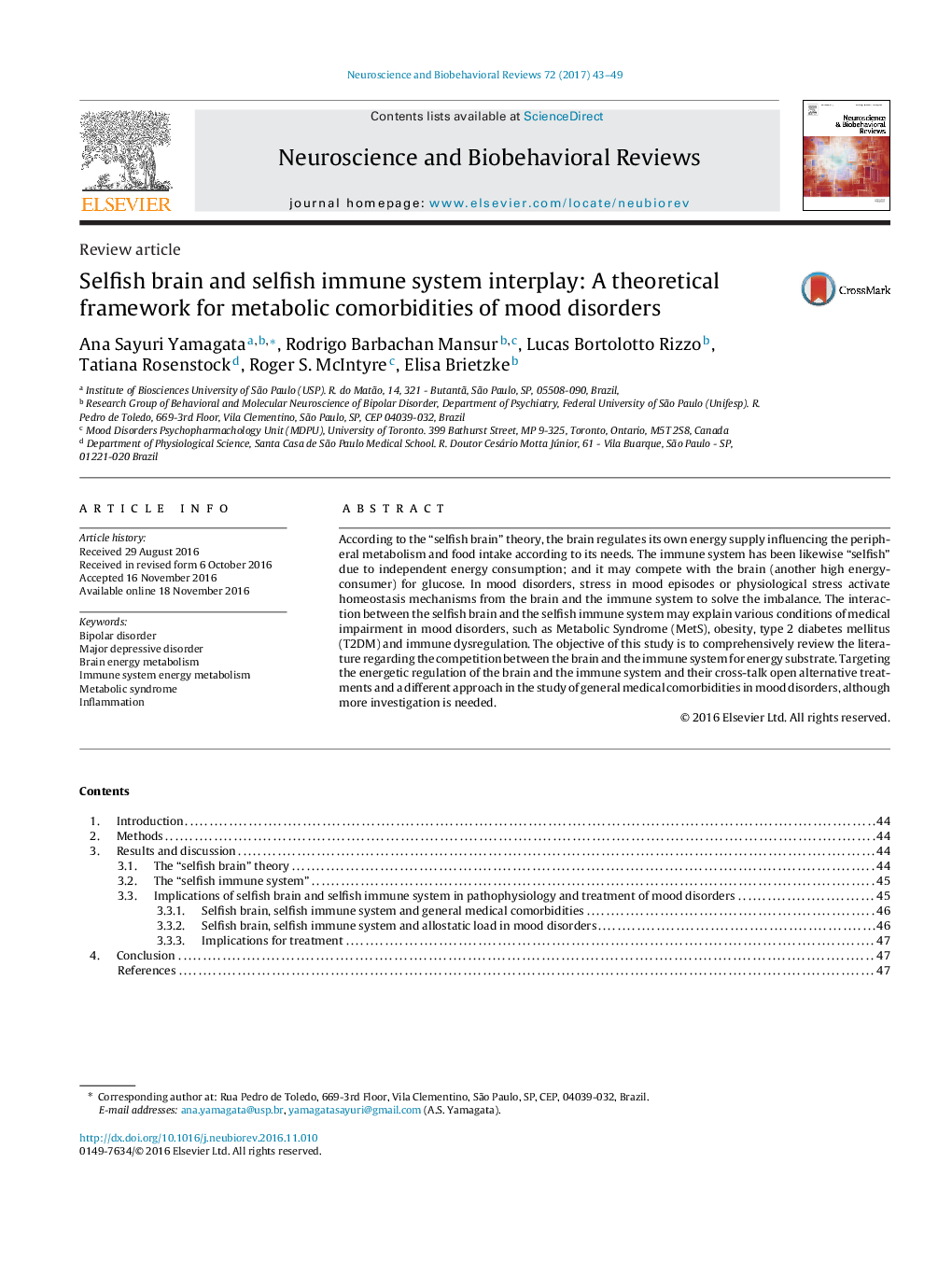| Article ID | Journal | Published Year | Pages | File Type |
|---|---|---|---|---|
| 5043640 | Neuroscience & Biobehavioral Reviews | 2017 | 7 Pages |
â¢The brain and the immune system are energy consumptive and are the highest hierarchical priority in energy distribution.â¢Psychological stress and immune dysfunction in mood disorders may contribute to malfunctioning of the mechanisms of the “selfish” brain and immune system.â¢Such malfunctioning may result in comorbidities in mood disorders.
According to the “selfish brain” theory, the brain regulates its own energy supply influencing the peripheral metabolism and food intake according to its needs. The immune system has been likewise “selfish” due to independent energy consumption; and it may compete with the brain (another high energy-consumer) for glucose. In mood disorders, stress in mood episodes or physiological stress activate homeostasis mechanisms from the brain and the immune system to solve the imbalance. The interaction between the selfish brain and the selfish immune system may explain various conditions of medical impairment in mood disorders, such as Metabolic Syndrome (MetS), obesity, type 2 diabetes mellitus (T2DM) and immune dysregulation. The objective of this study is to comprehensively review the literature regarding the competition between the brain and the immune system for energy substrate. Targeting the energetic regulation of the brain and the immune system and their cross-talk open alternative treatments and a different approach in the study of general medical comorbidities in mood disorders, although more investigation is needed.
